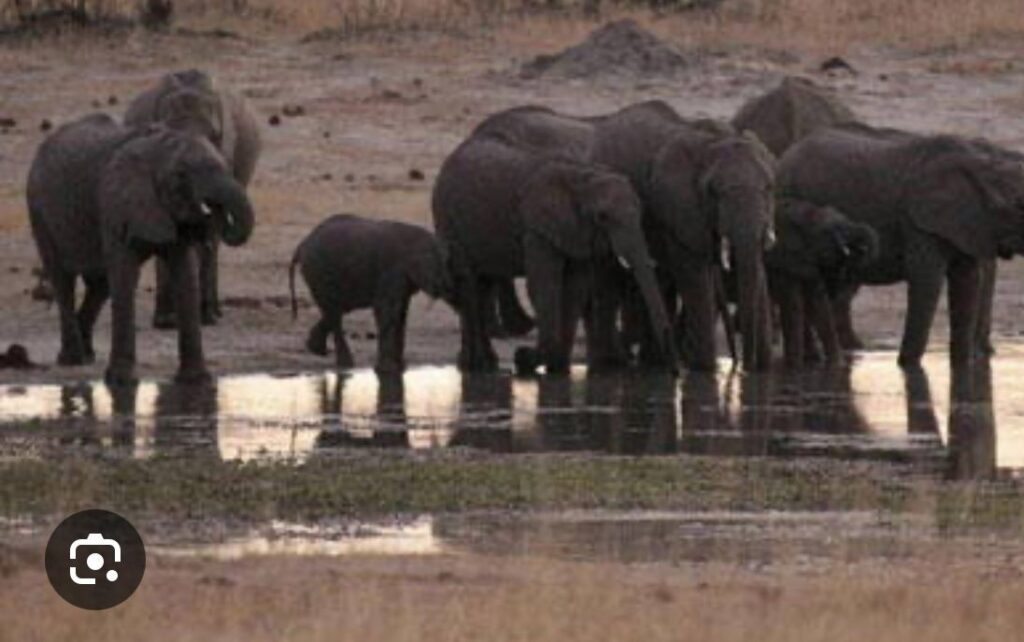As the world marks World Zoonoses Day today, Wild Africa, has called for urgent and consistent action to reduce the risk of future pandemics by curbing the illegal bushmeat trade, expediting the passage of the new wildlife bill, and protecting natural habitats.
Zoonotic diseases, also known as zoonoses, are infectious diseases that can be transmitted from animals to humans.
They include Ebola, Mpox (also known as Monkeypox), Lassa Fever, and COVID-19 — all of which have affected Nigeria in recent years.
According to the World Health Organization, a staggering 75% of emerging infectious diseases in humans originate from animals, with 71.8% of these emerging from wildlife.
In Nigeria, the illegal bushmeat trade, particularly in endangered species like pangolins, bats, monkeys, and snakes, persists in open markets and on roadside stalls.
While bushmeat is considered a source of animal protein in remote communities, its increasing demand in urban areas, such as Lagos, Abuja, and Port Harcourt, is a cause for concern.
During past outbreaks like Ebola and Anthrax, federal and state governments temporarily cracked down on bushmeat markets. But with waning public attention and inconsistent enforcement, traders and buyers often return to business as usual.
“World Zoonosis Day is a reminder that protecting wildlife is protecting ourselves. By embracing the One Health approach, which unites human, animal, and environmental health, we can break the chain of zoonotic diseases.
“I call on policymakers, communities, and individuals to join hands in preserving Nigeria’s rich biodiversity, halting illegal bushmeat consumption, and investing in sustainable alternatives for those who depend on it,” said Dr. Mark Ofua, the West Africa Representative at Wild Africa.
Zoonotic disease transmission happens through direct or indirect human-animal interaction (animal bites, scratches, faeces), the consumption of animal products and their environments, including natural, cultivated, built (i.e., abattoirs) and commercial environments, such as wet markets.
Although many zoonotic transmissions happen between humans and domestic animals, or including livestock, the majority, up to 71.8%, of zoonotic diseases arise from wildlife species. In fact, the most devastating pandemics in human history were all caused by zoonoses from wildlife.
In recent years, Nigeria has experienced or been vulnerable to numerous zoonotic diseases, including: Mpox: 3,771 suspected cases, 1,086 confirmed in Nigeria since 2017; Yellow Fever: 589 suspected cases in the first four months of 2024 alone; Anthrax: Outbreak in neighboring Ghana killed 97 animals and infected several people; Lassa Fever: Endemic in Nigeria, transmitted via rodents; Marburg Virus: Recent outbreaks in West Africa underscore the need for surveillance; and Bird Flu: Reported across West Africa; can spread from wild to domestic birds and humans.
This World Zoonosis Day, experts are sounding the alarm: human-driven actions, such as habitat destruction, biodiversity loss, and the bushmeat trade, are fueling zoonoses, not only endangering human lives but also imperiling wildlife and compromising the ecosystems we all depend on.
While Nigeria has made progress recently in protecting endangered species by introducing the Endangered Species Conservation and Protection Bill, which has passed its third reading and will now move to the Senate for further consideration, more needs to be done to support the bill for the president’s approval and its enforcement as a law.
World Zoonoses Day is observed every July 6 to commemorate the day Louis Pasteur successfully administered the first rabies vaccine in 1885, a milestone in the prevention of zoonotic diseases.
But experts say education and enforcement, not just vaccines, are our frontline defenses.
Wild Africa implores the Nigerian populace to cease the sale and consumption of bushmeat, joining the concerted effort against it.
The non-profit is running an awareness campaign across Nigeria, utilizing TV, radio, print media, billboards, and social media to inform the public that the health of humans, animals, and the environment is highly interconnected and that we must protect wildlife to protect ourselves.















